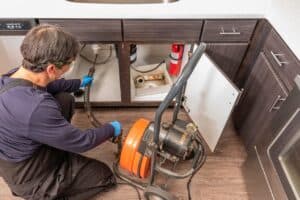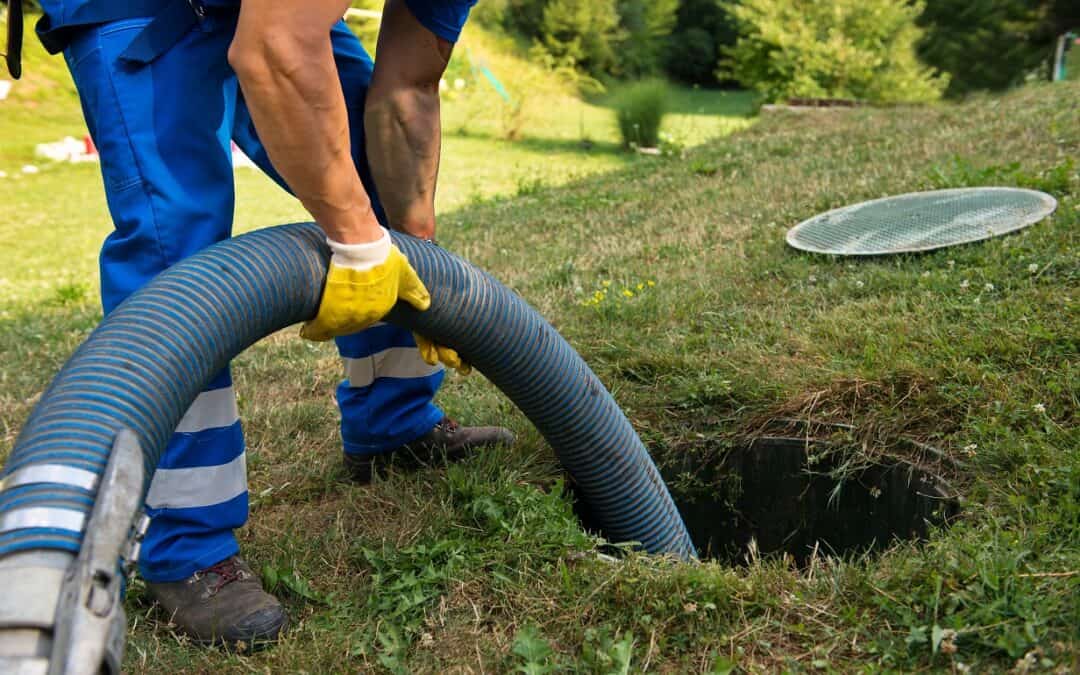A clear drain is essential for the plumbing in your home to function properly. The drains in your home are responsible for removing all of the liquid, food scraps and other debris that you flush down the toilet or pour down the sink. Without them, your home would be flooded with wastewater—and will not be pleasant to live in.
Clogged drains will lead to many problems. While you may be tempted to try and clear your own drains, it’s essential to consider how much damage can be caused by improper use of drain-clearing chemicals or tools. So, if you don’t have much plumbing experience, it’s best to hire an expert to do the job for you.
Why Drain Inspection And Clearing?
You’ll need a drain inspection for the plumber to determine what’s happening in your drains. The inspection will help determine what’s causing the problem, whether it’s a clog or something more severe like a structural issue or water backflow—giving a clear insight into how to keep them clear of debris.
Once the plumber has an idea of what the problem is, they can proceed with cleaning. Drain inspection and clearing is required for the following situations:
- Stagnant water in your sink or bathtub
- Leaking from under the sink or toilet
- Dripping faucet
- Evidence of damage to the pipe, such as leaks or cracks
- Change in the flow pattern of wastewater or sewage flowing through your drains
- A clogged drain or a slow-running toilet
- Toilet flushing poorly or not at all
Drain inspection and clearing are one of the most important parts of maintenance for your home. It gives you an idea of how well your drains are functioning and helps you identify any problems if they arise. If there are blockages, you can take steps to alleviate them by applying sewer blockage clearing before they become a significant issue.
Inspecting and clearing your home drains can be challenging, especially if you haven’t done this before. Thus, we’ve provided a guide with everything you need to know for drain inspection and clearing. Here are some of our tips:
1. Get A Drain Inspection Camera
A drain inspection camera is a highly effective tool for checking the internal condition of your drains. It lets you see what’s causing the clogging and other problems affecting its performance. The device works by sending out a small video camera through your pipe, which will then relay back any images or videos on what needs to be done for repair work. You can use this tool confidently, knowing it’s safe for you and your home as it doesn’t contain harmful chemicals.

2. Carrying Out A Comprehensive Drain Inspection
A comprehensive drain inspection is a process that an expert carries out to determine the cause of any clogs and other problems with your drains. The inspection will take place when you have all of your plumbing systems turned off and may involve using drain inspection cameras and various other tools, such as pressure washers or snake rods.
3. Use A Chemical Drain Cleaner
If you have a clogged drain, you can use a chemical drain cleaner, as it’ll unblock the pipe and remove debris. However, you should only use this product if your drains are made from PVC plastic or copper pipes, as it can cause damage to other types of materials. Contact a professional plumber for advice if you’re unsure about what kind of material your pipes are made of.
4. Take Note Of The Problem
If you have a clogged drain, it’s best to take note of the problem. If you have a garbage disposal in your kitchen sink, there may be too many food particles down there, thus leading to it getting jammed up. To fix this problem, try using ice cubes, salt, or a mixture of baking soda and vinegar to break up the blockage and dislodge whatever is causing the issue.
5. Check For Structural Damage
If you notice a lot of water building up in your drains, which isn’t typical for your home, it may be due to structural damage. If there are cracks or holes in the pipes, water can leak out and cause problems with clogs. The best way to solve this problem is to call a professional for them to assess whether your pipes can still be repaired or will need replacement.
Conclusion
There are many ways to avoid sewer blockages and clogs in your home. The best way to prevent this problem is to take care of your pipes and drains. Make sure they are in good condition, and if you observe a problem, they should be immediately fixed so that you won’t have a significant blockage problem. Lastly, it’s vital to check the drains in your home regularly, and if you notice a problem you can’t handle, it’s best to contact a professional plumber.

Recent Comments